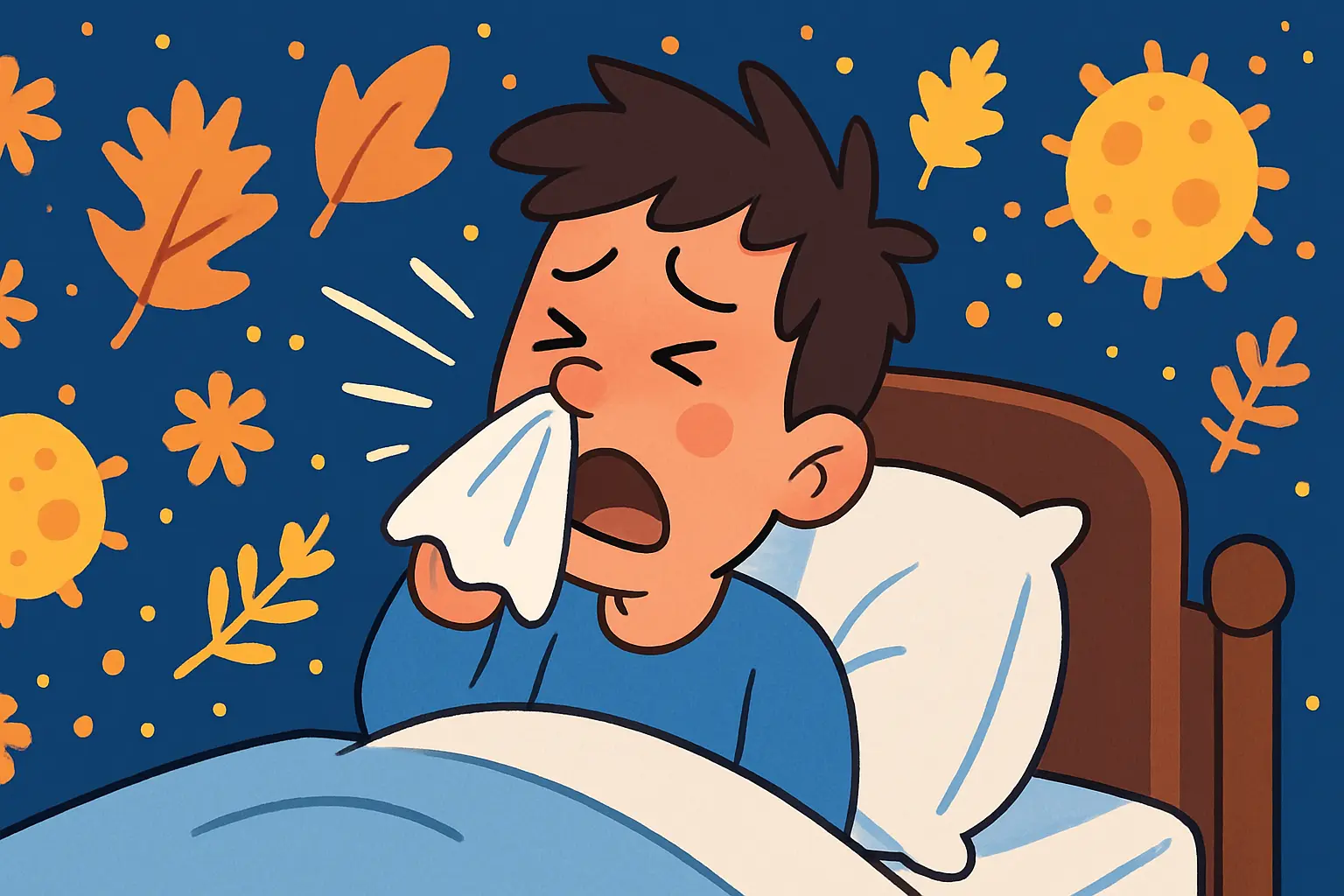Seasonal Allergies and Snoring: Hidden Contributors to Sleep Disturbances
Seasonal allergies are a frequent yet overlooked contributor to snoring and fragmented sleep.
Inflammation, nasal congestion, and postnasal drip can narrow the airway, causing louder snoring and reduced oxygen levels at night.
How Allergies Affect Sleep
- Nasal congestion → forces mouth breathing, increasing snoring
- Inflammation in upper airways → tissue swelling and vibration
- Postnasal drip → irritation of throat and soft palate
- Disrupted sleep cycles → frequent micro-arousals and reduced REM sleep
SnailSleep monitoring revealed that users with seasonal allergies experience a 25–30% increase in snoring intensity during peak allergy seasons.
Data Snapshot: Allergies vs. Snoring
| Allergy Season | Avg. Snore Score (0-100) | Oxygen Saturation (%) | % Users with Mouth Breathing |
|---|---|---|---|
| Non-allergy season | 49 | 95 | 18% |
| Pollen season | 63 | 92 | 42% |
| High-dust season | 58 | 93 | 35% |
Seasonal allergens can significantly increase airway obstruction and snoring intensity.
Physiological Mechanisms
- Inflamed nasal passages → increased airway resistance
- Swollen soft palate and uvula → louder snoring vibrations
- Mouth breathing compensation → reduced airway stability
- Sleep fragmentation → daytime fatigue and impaired cognitive function
Strategies to Reduce Allergy-Related Snoring
- Allergy management — antihistamines, nasal corticosteroids, or immunotherapy
- Nasal hygiene — saline sprays, nasal irrigation to clear allergens
- Air quality control — HEPA filters, frequent cleaning, avoiding open windows during peak pollen
- Positional therapy — side sleeping to reduce airway collapse
- AI monitoring — SnailSleep tracks snoring, oxygen saturation, and breathing patterns to quantify improvement
Real-Life Case: Olivia's Allergy Season
Olivia, 29, noticed louder snoring during spring and early summer.
SnailSleep detected frequent mouth breathing and oxygen dips to 91–92% during pollen exposure.
After implementing nasal sprays, HEPA filters, and side-sleeping, her snoring intensity decreased by 40%, and her sleep felt more restorative.
Related Articles
- Mouth Breathing in Sleep: Hidden Cause of Chronic Snoring
- How Alcohol and Late-Night Eating Affect Sleep Quality and Snoring
- Mouth Breathing in Children: Risks for Sleep and Development

